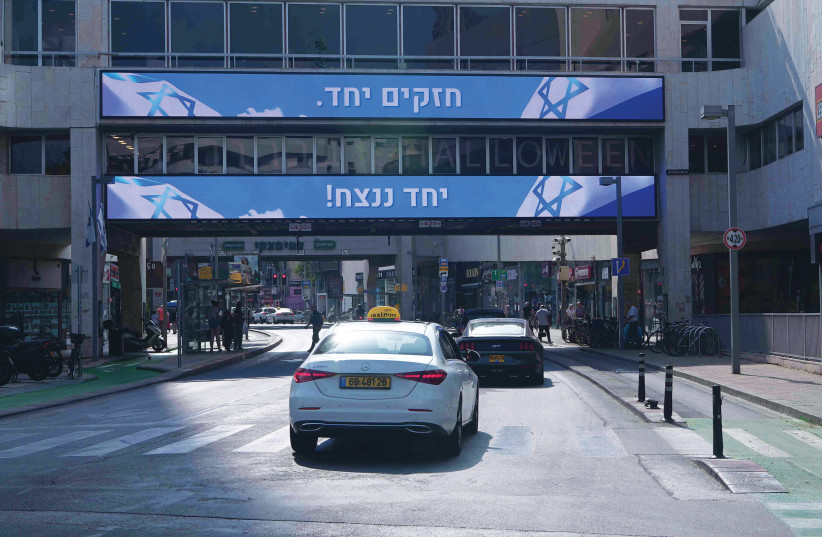Side-by-side photos of the faces of two soldiers who fell in Gaza on Monday graced numerous social media sites on Tuesday and will look out from the front pages of the newspapers on Wednesday: Sgt. First Class (res.) Joseph Gitarts and Staff Sgt. (res.) Elisha Yehonatan Lober.
Gitarts, 25, is wearing a slight grin; Lober, 24, has a wide smile. Gitarts lived in Tel Aviv, Lober in Yitzhar. What stands out in Gitarts’ photo is his green beret; in Lober’s, it is his long peyot (earlocks).
Gitarts was born in Russia and immigrated at the age of 13; Lober was born in Beit El, son of actor and playwright Hagai Lober, director of the Aspaklaria theater. Gitarts was a second-year computer science student at Reichman University; Lober studied at the Roei Yisrael Yeshiva in Yitzhar and was a youth coordinator in the community.
Gitarts was single, Lober was married with a 10-month-old baby.
A look at the photos of the two, and a superficial glance at their biographical sketches, paints a picture of two different Israels: what someone pre-October 7 might have referred to as the “State of Tel Aviv vs Judea.” Yet they both died battling an enemy that sees absolutely no difference between the two and wants to rid the world of both.
Lober’s father, Hagai, appealed in a Facebook post for a day of unity to honor his son. “We request of the media and of every one of our nation: please, one day of unity to uplift his soul, please don’t write or broadcast anything divisive, please, speak good [of others], find the good of the decision-makers and of our amazing people who Yehonatan was proud to fight for.”

Unity must not fade
President Isaac Herzog addressed this in a speech to the nation on Sunday, saying that Israel must not return to the poisonous disunity that existed here before October 7. “We must not return to the discourse of ‘us and them’.”
Gitarts and Luber‘s pictures side by side show that in war, there is no “us” and “them.”
In the immediate aftermath of October 7, a Facebook post written by Boaz Levi went viral. “Life is complex,” he wrote in words that resonated loudly. “Yair Golan, hated by the Israeli Right, risked his life to save Jews from slaughter. An Israeli hero.”
“Life is complex,” he continued. “Settlers, the hilltop youth hated by the Israeli Left, threw themselves into the inferno by the dozens in battles to defend the kibbutzim around the Gaza border.”
And since the ground operation began in Gaza on October 27, the Left and Right, religious and secular, new immigrants and veterans, sons of settlers and sons of hi-tech entrepreneurs, have been fighting together – and too often dying side by side – in the fight against Hamas.
A look at the names of the 161 soldiers who have been killed since October 27 shows a cross-section of that part of Israeli society that serves in the IDF (Israeli Arabs and haredim have exemptions and, for the most part, do not serve).
Thirty of the fallen have come from Judea and Samaria, 26 from cities in the central district, 16 from Jerusalem, 13 from the cities in the southern district, 11 each from cities in the Haifa and Tel Aviv districts, and seven from the cities in the North. In addition, 11 of the fallen were from kibbutzim, and 10 were from moshavim.
These grim statistics show that the fallen come from both “them” and “us.” The statistics are proof that, as Herzog put it, “we shoulder on together.”
